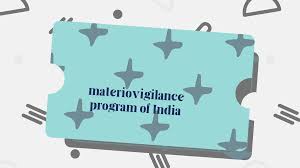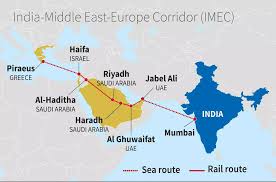Today’s Current Affairs: 22nd May 2024 for UPSC IAS exams, State PSC exams, SSC CGL, State SSC, RRB, Railways, Banking Exam & IBPS, etc
Table of Contents
Materiovigilance Programme Of India (MvPI) Platform:

The Drugs Controller General of India (DCGI), through a circular, has directed all device license holders and manufacturers to report any adverse events on the Materiovigilance Programme of India (MvPI) platform to mitigate risks and ensure public health safety.
- MvPI was launched in 2015, and is overseen by the Indian Pharmacopoeia Commission since 2018.
- It serves as the National Coordination Centre, focusing on monitoring Medical Device-associated Adverse Events (MDAE) and raising awareness among healthcare professionals.
- MDAE reports can be submitted by various stakeholders, including clinical specialists, biomedical engineers, nurses, pharmacists, and patients.
- The Drugs Controller General of India (DCGI) heads the Central Drugs Standard Control Organization, overseeing the approval of licenses for specified drug categories in India, including blood products, vaccines, and IV fluids.
- DCGI operates under the Ministry of Health & Family Welfare and establishes standards for drug manufacturing, sales, import, and distribution in the country.
Whitley Gold Award 2024:

Dr Purnima Devi Barman from India has been awarded the 2024 Whitley Gold Award (dubbed ‘Green Oscar’) by the UK charity Whitley Fund for Nature (WFN) for her efforts to save the Greater Adjutant Stork (Hargila).
- Barman’s campaign has increased the stork population in Assam from 450 to over 1,800.
- She has mobilized 10,000 rural women, known as “stork sisters,” to protect nesting sites and rebrand the stork from a bad omen to a cultural symbol.
- The project has planted 45,000 saplings and rescued over 500 chicks. The global population of the stork has increased to approximately 3,180 birds.
- Greater Adjutant Stork Known as ‘Hargila,’ primarily found in Assam (80%) and Bihar, India, and Cambodia.
- Habitat: Wetlands, nests in tall trees with closed canopies and bamboo clumps.
- Threats: Hunting, habitat destruction, felling of nest trees, and wetland degradation.
- Conservation Status: IUCN: Nearly Threatened (NT).
- The Greater Adjutant Stork plays a vital role in nutrient recycling and maintaining ecosystem health.
Indian Council Of Medical Research : Distanced Itself From The BHU Researchers

The Indian Council of Medical Research (ICMR) has distanced itself from the Banaras Hindu University (BHU) researchers for “incorrectly” associating it with an observational study on the side effects of the Covid-19 vaccine Covaxin.
- The Indian Council of Medical Research (ICMR), the apex body in India for the formulation, coordination and promotion of biomedical research, is one of the oldest and largest medical research bodies in the world.
- INDIAN COUNCIL OF MEDICAL RESEARCH (ICMR) the Government of India set up the Indian Research Fund Association (IRFA) with the specific objective of sponsoring and coordinating medical research in the country.
- After independence, several important changes were made in the organisation and the activities of IRFA.
- It was redesignated as the Indian Council of Medical Research (ICMR) in 1949, with a considerably expanded scope of functions as:
- Apex body in India for formulation, coordination and promotion of biomedical research
- Conduct, coordinate and implement medical research for the benefit of the Society
- Translating medical innovations in to products/processes and introducing them in to the public health system
Green Credit Program:

The Centre has approved 12 greening projects under the Green Credit Program (GCP), which was notified last year as a market-based mechanism designed to incentivize voluntary environmental actions across diverse sectors, officials aware of the development said.
- The GCP, notified on October 13, 2023, seeks voluntary participation in “environmental positive actions” such as afforestation, water conservation, waste management among others from PSUs, private industries, non-profits and individuals.
- The Green Credit Programme is an innovative market-based mechanism designed to incentivize voluntary environmental actions across diverse sectors.
- This programme was officially unveiled in October 2023 and has its provenance in Mission Life, a principle frequently articulated by Prime Minister Narendra Modi. Its goal is to lay an emphasis on sustainability, reduce waste and improve the natural environment.
- The GCP programme presents itself as an “innovative, market-based mechanism” to incentivise “voluntary actions” for environmental conservation.
- Under this, individuals, organisations and companies public and private would be encouraged to invest in sectors ranging from afforestation, water conservation, stemming air-pollution, waste management, mangrove conservation and in return be eligible to receive ‘green credits.’
- It complements the domestic carbon market by incentivizing sustainable actions by companies, individuals, and local bodies.
- An autonomous body of the Ministry, the Indian Council of Forestry Research and Education (ICFRE), is in charge of administering the programme.
- It is responsible for programme implementation, management, monitoring, and operation.
India Middle East Europe Economic Corridor:

The first inter-ministerial delegation from India held meetings from May 15-17 under the Intergovernmental Framework Agreement between the two countries concerning cooperation for the empowerment and operation of the India-Middle East-Europe Economic Corridor .
- The visit, which took place within three months of signing the Agreement, reflects the importance both governments attach to the IMEC project.
- The India-Middle East-Europe Economic Corridor (IMEC) was announced in September 2023 following a meeting in New Delhi between the leaders of India, the US, the United Arab Emirates (UAE), Saudi Arabia, Italy, France, Germany, and the European Commission on the sidelines of the G20 Summit.
- The IMEEC will comprise two separate corridors, the east corridor connecting India to the Gulf and the northern corridor connecting the Gulf to Europe.
- The corridor will provide a reliable and cost-effective cross-border ship-to-rail transit network to supplement existing maritime routes.
- It intends to increase efficiency, reduce costs, secure regional supply chains, increase trade accessibility, enhance economic cooperation, generate jobs and lower greenhouse gas emissions, resulting in a transformative integration of Asia, Europe and the Middle East (West Asia).
Sariska Tiger Reserve: Supreme Court Orders Mine Closures

The Supreme Court of India told the Rajasthan government on May 15 to close 68 mines that are less than one kilometer from the Sariska Tiger Reserve.
- This decision is part of a larger attempt to keep illegal mining out of the important habitat for tigers, which has been a problem since the 1990s.
- The court’s ruling backs up rules from the Wildlife Protection Act of 1972 and the Environment Protection Act of 1986, which both say that quarrying is not allowed near tiger reserves.
- A local NGO first brought the issue of mining in Sariska to the attention of the Supreme Court in October 1991 through a Petition in the Likeness(PIL) of the Parties .
- An interim order stopped mining in the reserve right away, and Justice M. L. Jain set up a fact-finding group.
- The next results confirmed that the 800 sq km protected area was very important.
- In April 1993, the court stepped up its efforts by telling 262 mines in this area to close down.
- By the middle of the 2000s, reports from the Central Empowered Committee (CEC) showed that violations were still happening.
- This led to more court orders to build a one-kilometer safety zone around the reserve.
- But despite these attempts, progress was slowed down by actions that were not consistent across states and disagreements over where the borders should be.
Indian Army Gets AK-203 Rifles:

The Indian Army has received the first batch of 27,000 units of Russian AK-203 assault rifles.
- Under a contract signed between India and Russia in July 2021, over 6.1 lakh AK-203 assault rifles are to be manufactured in India with technology transfer from Russia.
- The joint venture Indo-Russian Rifles Private Limited (IRRPL) was established at Korwa in Uttar Pradesh in 2019 for this purpose.
- It was set up between the erstwhile Ordnance Factory Board [now Advanced Weapons and Equipment India Limited (AWEIL) and Munitions India Limited (MIL)] from India and Rosoboronexport (RoE) and Kalashnikov concern of Russia.
- India is progressively making the AK-203 rifles within the country, aiming to reach 70% domestic content in just 2 years.
- Currently, around 25% of the rifle’s parts are manufactured locally.
- The full-scale production with 100% localisation of rifles is expected to be reached within 2-3 years.
- The Indian Army has been phasing out the INSAS (Indian National Small Arms System) rifles in favour of more advanced weaponry.
Tokyo Atacama Observatory : Inaugrated

The University of Tokyo Atacama Observatory (TAO) has recently been inaugurated.
- It is now the highest astronomical observatory (altitude of 18,500 feet) in the world, even surpassing the famous Atacama Large Millimeter Array (ALMA), which stands at 16,570 feet.
- The TAO telescope, measuring 6.5 metres in optical-infrared capacity, is perched at an altitude of 18,500 feet on Mount Chajnantor in Chile’s Atacama Desert.
- Chajnantor is located in the Andes Mountains near the Atacama Desert.
- The Atacama Desert is one of the best locations on Earth for astronomical observations due to its high altitude, low humidity, and clear skies, which provide excellent conditions for studying the cosmos.
- The area’s elevated altitude, sparse atmosphere, and consistently dry weather make it perfect for observing nearly the full spectrum of near-infrared wavelengths.
- Infrared radiation has a wavelength longer than visible light but shorter than microwaves.
- TAO’s 6.5-meter telescope is equipped with 2 science instruments designed for infrared observations.
- SWIMS (Simultaneous-colour Wide-field Infrared Multi-object Spectrograph): Aimed at understanding the evolution of galaxies.
- MIMIZUKU (Mid-Infrared Multi-field Imager for gaZing at the UnKnown Universe): Used to study planet formation and the origin of materials.
India Observes State Mourning For Iran President:

The Government of India has announced a day of state mourning on 21st May 2024, following the tragic death of Iranian President Seyed Ebrahim Raisi and other senior officials in a helicopter-related incident.
- As part of the state mourning, the national tricolour will be flown at half-mast at all public buildings across the country as a mark of respect for the late Iranian president, and no official entertainment will take place during this period.
- State mourning in India is observed under specific guidelines provided by the Ministry of Home Affairs.
- These guidelines are part of the broader set of rules and conventions known as the Flag Code of India, 2002.
- The Prime Minister of India expressed grief on Raisi’s death and acknowledged his significant contribution to India-Iran ties. During President Raisi’s term, Iran joined the BRICS grouping in Johannesburg in 2023, alongside Saudi Arabia.




